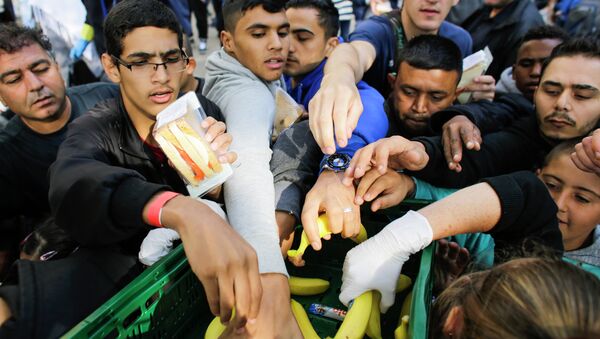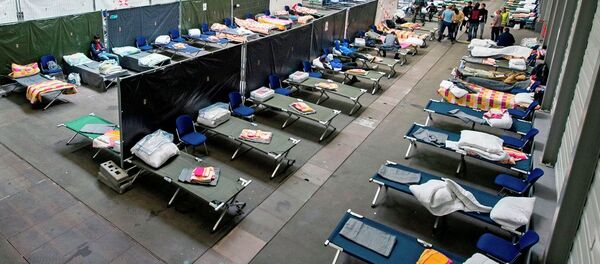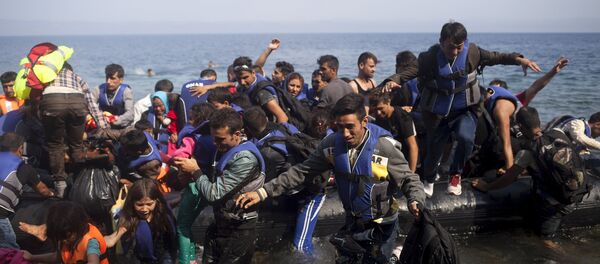"Solid finances allow us to take on emerging challenges," Merkel assured lawmakers in the German parliament Bundestag. "We will react to this challenge as swiftly as to the [2008] financial crisis."
Germany expects to deal with a total of 800,000 migrants and refugees this year, although economic migrants from countries deemed "safe" will have to go, Merkel said. Her coalition partner, Vice Chancellor Sigmar Gabriel said earlier this week the country could cope with 500,000 migrants coming annually for several years.
Merkel’s ruling coalition has earmarked six billion euro ($6.7 billion) in additional funds to cover the costs of the migrant influx, with half of these funds going to federal states.
Germany should prioritize the fast and effective social integration of refugees, Merkel said.
"Most of them [refugees] will become new citizens of our country, so we should learn from the experience of the sixties, when we called on workers from foreign countries to help us. Integration should be our top priority," Merkel said, adding that any attempts to reject integration would be suppressed "with the full force of law."
Germany, one of several European countries struggling with the ongoing migrant crisis, has witnessed a wave of anti-immigration protests, including a series of incidents in which far-right extremists attempted to disrupt services to refugees in the country.




